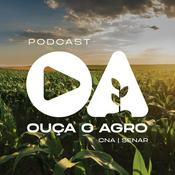1481 episódios

Isabelle Guérin et. al., "The Indebted Woman: Kinship, Sexuality, and Capitalism" (Stanford UP, 2023)
29/11/2025 | 55min
In The Indebted Woman: Kinship, Sexuality, and Capitalism (Stanford UP, 2023), the authors Isabelle Guérin, Santosh Kumar and G. Venkatasubramanian conceptualise how gender, debt, and capitalism are related. For over ten years, the researchers have been working in the Indian countryside of east-central Tamil Nadu, observing a credit market that specifically targets Dalit women. The book highlights not only the ways how credit is distributed, but also how it is repaid. Combining in-depth ethnography with statistical surveys and financial diaries advanced the understanding of how Dalit women deal with debt, exposing the ways in which capitalism shapes womanhood. The authors' nuanced attention to body, identity, caste, and class provides a comprehensive theory of the sexual division of debt for the first time. Isabelle Guérin is Senior Research Fellow at the French Institute of Research for Sustainable Development, and Associate at the French Institute of Pondicherry. Santosh Kumar is a part-time researcher and founder and head of the Mithralaya School of music, dance, and arts. G. Venkatasubramanian has been a sociologist and Research Fellow at the French Institute of Pondicherry for the past thirty-five years. Sarah Vogelsanger is a researcher on social justice, gender, art and migration, based in London. Learn more about your ad choices. Visit megaphone.fm/adchoices Support our show by becoming a premium member! https://newbooksnetwork.supportingcast.fm/economics

Verena Halsmayer on Managing Growth in Miniature: Solow’s Model as an Artifact
24/11/2025 | 1h 22min
Peoples & Things host, Lee Vinsel, chats with Verena Halsmeyer, a postdoctoral fellow at the University of Vienna, about her recent, award-winning book, Managing Growth in Miniature: Solow’s Model as an Artifact. The book explores the history of the way economists think about growth, including the role of technological change in it. It focuses on the period between the 1930s and 1960s, tracing the development of the famed 'Solow growth model,' one of the central mathematical models in postwar economics. The pair also talk about the intersections between the history of science and the history of economics and how we all can learn to focus on practices - that is, what people do - rather than on ideas alone. Learn more about your ad choices. Visit megaphone.fm/adchoices Support our show by becoming a premium member! https://newbooksnetwork.supportingcast.fm/economics

Richard S. Ruback and Royce Yudkoff, "HBR Guide to Buying a Small Business: Think Big, Buy Small, Own Your Own Company" (HBR Press, 2017)
24/11/2025 | 55min
Are you looking for an alternative to a career path at a big firm? Does founding your own start-up seem too risky? There is a radical third path open to you: You can buy a small business and run it as CEO. Purchasing a small company offers significant financial rewards--as well as personal and professional fulfillment. Leading a firm means you can be your own boss, put your executive skills to work, fashion a company environment that meets your own needs, and profit directly from your success. But finding the right business to buy and closing the deal isn't always easy. In the HBR Guide to Buying a Small Business: Think Big, Buy Small, Own Your Own Company (Harvard Business Review Press, 2017), Harvard Business School professors Richard Ruback and Royce Yudkoff help you: Determine if this path is right for you Raise capital for your acquisition Find and evaluate the right prospects Avoid the pitfalls that could derail your search Understand why a "dull" business might be the best investment Negotiate a potential deal with the seller Avoid deals that fall through at the last minute Arm yourself with the advice you need to succeed on the job, with the most trusted brand in business. Packed with how-to essentials from leading experts, the HBR Guides provide smart answers to your most pressing work challenges. Listen to the Think Big, Buy Small podcast. Richard S. Ruback is the Willard Prescott Smith Professor of Corporate Finance at Harvard Business School. Royce Yudkoff is a Professor of Management Practice at Harvard Business School. Yudkoff cofounded and served for over 20 years as Managing Partner of ABRY Partners, a leading private equity investment firm. Caleb Zakarin is editor of the New Books Network. Learn more about your ad choices. Visit megaphone.fm/adchoices Support our show by becoming a premium member! https://newbooksnetwork.supportingcast.fm/economics

Ivan Franceschini et al., "Scam: Inside Southeast Asia's Cybercrime Compounds" (Verso Books, 2025)
20/11/2025 | 50min
“If I had been enslaved for a year or two, I might not be able to believe in humanity any more.” “I am a victim of modern slavery.” These chilling words come from a Taiwanese female lured by a fake job offer, only to be sold into a scam compound in Cambodia. She is not alone. She is one of thousands deceived into this industry—people who left home hoping for a better life, only to find themselves trapped in a living nightmare. Scam: Inside Southeast Asia's Cybercrime Compounds (Verso Books, 2025) arrives at a critical moment, shedding light on one of the world’s fastest-growing criminal economies: Southeast Asia’s online scam industry. Running the gamut from the notorious “pig butchering” romance scams to elaborate online extortion and investment frauds, this system has transformed parts of the region into global hubs of cybercrime. Meticulously researched and grounded in years of fieldwork, Scam offers an unflinching look into the prison-like compounds that have mushroomed across multiple countries. Within these walled complexes, victims are often coerced into becoming perpetrators—trapped in what the authors describe as “compound capitalism,” a chilling hybrid of enslavement and exploitation. Scam traces how small-scale online gambling rings evolved into an international “scamdemic,” accelerated by the disruptions of COVID-19. It examines the “victim–offender trap”, a moral and psychological paradox that makes empathy difficult for outsiders. The result is a deeply human investigation into how modern slavery adapts to digital capitalism. The authors uncover the operations of scam compounds across Southeast Asia. In my interview with Ling and Ivan, what stood out was not only their depth of knowledge but their compassion. They used their skills to build trust with victims, gather evidence, and, in some cases, help orchestrate rescues. Their work is both rigorous and profoundly humane, illuminating a crisis that grows more complex each day. Though many of those involved—both perpetrators and victims—are ethnically Chinese, the networks now span continents. The scam compounds are a global phenomenon, built on economic desperation, weak governance, and digital interconnectivity. Scam is more than an exposé. It is a call to action and a vital first step toward understanding a new form of global exploitation—where modern technology and ancient cruelty combine to create a system that enslaves the vulnerable and profits from despair. Ling Li is pursuing a PhD at Ca’ Foscari University of Venice with a focus on the role of technology in enabling modern slavery and human trafficking in East and Southeast Asia. In the past few years, she has been providing support to survivors of scam compounds in Southeast Asia, interacting with local and international civil society organisations to bring them relief and help with repatriation. Ivan Franceschini is a lecturer at the Asia Institute, University of Melbourne. His current research focuses on ethnic Chinese transnational crime, especially in the field of online fraud. He co-founded the Made in China Journal and The People’s Map of Global China/ Global China Pulse. His books include Proletarian China (2022), Global China as Method (2022), and Afterlives of Chinese Communism (2019). He also co-directed the documentaries Dreamwork China (2011) and Boramey (2021). Mark Bo is a researcher who has been based in East and Southeast Asia for 2 decades. He has worked globally with local civil society partners to monitor and advocate for improved environmental and social practices in development projects and utilises his background in corporate and financial mapping to investigate stakeholders involved in Asia’s online gambling, fraud, and money laundering industries. Bing Wang receives her PhD at the University of Leeds in 2020. Her research interests include the exploration of overseas Chinese cultural identity and critical heritage studies. She is also a freelance translator. Learn more about your ad choices. Visit megaphone.fm/adchoices Support our show by becoming a premium member! https://newbooksnetwork.supportingcast.fm/economics

Christina Jerne, "Opposition by Imitation: The Economics of Italian Anti-Mafia Activism" (U Minnesota Press, 2025)
19/11/2025 | 56min
For more than 150 years, Italy has been home to a resilient and evolving resistance against the pervasive influence of mafias. While these criminal organizations are renowned for their vast international business enterprises, the collective actions taken to oppose them are less known. In Opposition by Imitation: The Economics of Italian Anti-Mafia Activism (U Minnesota Press, 2025), Dr. Christina Jerne explores anti-mafia activism, revealing how ordinary people resist, counter, and prevent criminal economies from proliferating. Drawing on ethnographic fieldwork among anti-mafia alliances in Campania, Sicily, and other parts of Italy, Dr. Jerne details a particular aspect of mafia activities: providing cash relief and other forms of patronage to individuals and groups. Her research shows how activism has evolved to imitate this sustaining role. Activists are increasingly challenging mafia control both by creating alternative economies—from producing food that interrupts mafia labor practices to organizing tourism that supports anti-mafia hospitality—and by subversively adopting business tactics similar to the mafia’s to compete with their social influence and legitimacy. Exposing the political implications of this mimetic opposition, Dr. Jerne points to its potential impact on crime prevention and criminalization, both in Italy and globally. Opposition by Imitation shows how these modern-day Robin Hoods are redefining collective action, taking what was controlled by the mafias and returning it to the collective. This contentious economic turn, against the backdrop of broader social movements, reveals significant political possibilities afforded by imitative opposition. This interview was conducted by Dr. Miranda Melcher whose book focuses on post-conflict military integration, understanding treaty negotiation and implementation in civil war contexts, with qualitative analysis of the Angolan and Mozambican civil wars. You can find Miranda’s interviews on New Books with Miranda Melcher, wherever you get your podcasts. Learn more about your ad choices. Visit megaphone.fm/adchoices Support our show by becoming a premium member! https://newbooksnetwork.supportingcast.fm/economics
Mais podcasts de Ciência
Podcasts em tendência em Ciência
Sobre New Books in Economics
Ouça New Books in Economics, Os três elementos e muitos outros podcasts de todo o mundo com o aplicativo o radio.net
Obtenha o aplicativo gratuito radio.net
- Guardar rádios e podcasts favoritos
- Transmissão via Wi-Fi ou Bluetooth
- Carplay & Android Audo compatìvel
- E ainda mais funções
Obtenha o aplicativo gratuito radio.net
- Guardar rádios e podcasts favoritos
- Transmissão via Wi-Fi ou Bluetooth
- Carplay & Android Audo compatìvel
- E ainda mais funções

New Books in Economics
baixe o aplicativo,
ouça.





































